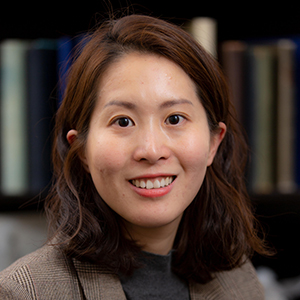Recent advances in theoretical methods and accelerated computing powers have opened doors to easily access and use quantum mechanical calculations in researching heterogeneous catalysis. Such methods, in turn, have enabled us to understand the nature of active centers in solid catalysts and the detailed reaction mechanisms, which were often difficult to assess solely from experiments. Yet, rigorously connecting experiment and theory has remained a challenge, including a strategy to find appropriate catalyst models that accurately capture the nature of active sites in working conditions.

Stephanie Kwon,
Colorado School of Mines
In this talk, I will discuss how to rigorously combine kinetic and spectroscopic experiments with DFT calculations to reveal the mechanistic details of toluene alkylation routes on acidic zeolites and of direct hydrogen peroxide synthesis on Pd-based catalysts. I will also discuss how to use such knowledge in reaction mechanisms to design new catalytic systems with improved activity, selectivity, and stability.
Stephanie Kwon is an assistant professor in the Chemical and Biological Engineering Department at Colorado School of Mines. Her research interest centers on heterogeneous catalysis and sustainability. She brings together research tools, including in-situ spectroscopy, microkinetic modeling, and density functional theory calculations, to understand surface reactions at a molecular-level. In doing so, she aims to tackle our current energy and environmental problems by providing novel catalytic systems with improved energy and atomic efficiency. Her current research projects include CO2 conversion, low temperature H2O electrolysis for H2 production, biomass conversion (via aldol condensation catalysis), benzene alkylation, and alkene oxidation catalysis. Before joining CSM, she worked as a postdoctoral fellow at the University of California, Berkeley.